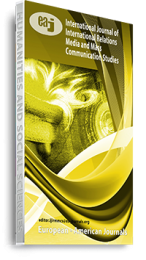The focus of this study was to explore the roles played by media, particularly community radios in promoting the rights to life of elderly women in Tanzania. Specifically, the study evaluated the “haki za binadamu program” aired by radio SAUT FM in Nyamagana, Mwanza region. The evaluation concentrated on two areas: One, it evaluated the accessibility and listenership of the program and two it evaluated the success of the program in promoting the rights of elderly women in the district. This is a qualitative research which used purposive and snowball sampling techniques to select the respondents. A total of 27 respondents were involved in the study, they included; three police officers from the gender desk in Nyamagana police station, five local leaders, six journalists who are specialized in human rights reporting, and 13 respondents from families of elderly women who were reported to have been killed due to witchcraft accusations. In-depth interviews and focus group discussions were used to collect the data for this study. Thematic analysis was used to analysis the data gotten from the field. The findings suggest that the accessibility and listenership of haki za binadamu program in Nyamagana district was very poor. It was also found that haki za binadamu program has not played any noticeable contributions in promoting the rights to life to the elderly women in Nyamagana district.
Keywords: Evaluation, Haki za Binadamu., Media, Role, elderly women’s right to life, promoting

